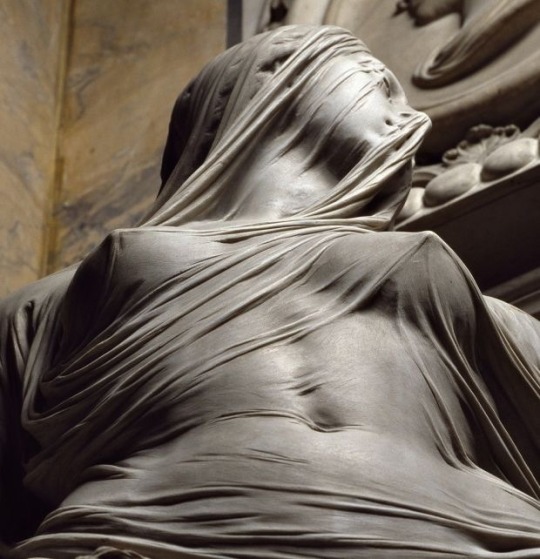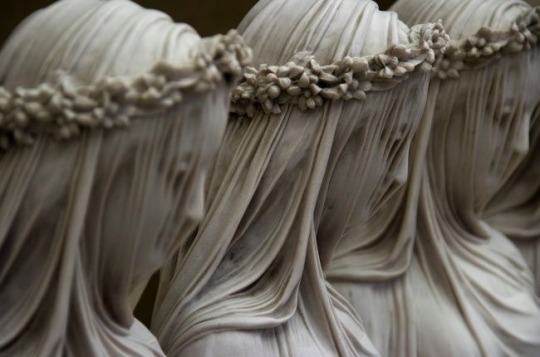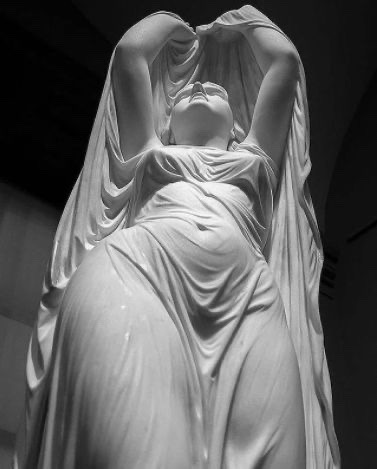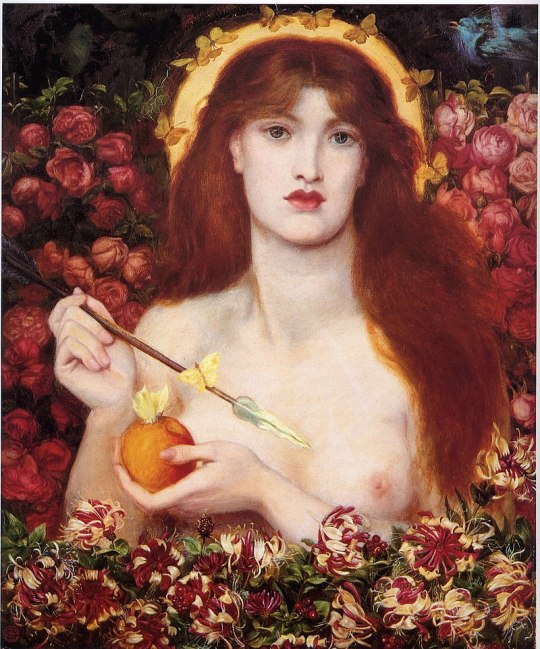#roman pagan
Text






#vesta 🪔#aesthetics :: 🎨#devotion :: 📿#roman pagan#pagan community#pagan#paganblr#paganism#pagans of tumblr#spiritual#spirituality#polytheism#religion#deity devotion#deity worship#sculpture#italy#marble
11K notes
·
View notes
Text
Please pray for Poland and the people here, especially the oppressed minorities. There will be parliament elections on Sunday, currently we're ruled by an authoritarian right-wing party and things are only getting worse and worse. An actual fascist party is also gaining popularity. These elections are extremely important for the future of Poland, because the ruling party is destroying democratic institutions and we don't know how the next elections will look like if they win.
And please reblog so more people can see it.
🇵🇱 🏳️🌈 🏳️⚧️
#czortposting#witchcraft#witchblr#pagan#paganism#slavic pagan#slavic paganism#deity work#deity worship#polytheism#hellenic pagan#hellenic paganism#roman pagan#roman paganism#theistic satanism#theistic satanist#luciferian#luciferianism#demonolatry
619 notes
·
View notes
Text
What Non-Pagans Need to Know About Fiction Featuring Pagan Gods

In light of Marvel's Loki show dropping a second season and a new Percy Jackson series on the horizon, I want to say some things about how fandom spaces can be respectful of real-life pagan religion.
Let's get one thing out of the way: literally no one is saying you can't enjoy fiction that uses pagan gods and heroes as characters. No one is saying, "Stop writing stories about our gods." In fact, many ancient cultures wrote fiction about their gods -- look at Greek theater or the Norse Eddas. The act of writing fiction about the gods is not offensive in itself.
But please remember that this is someone's religion.
The gods are not "just archetypes." Their myths are not "just stories." Their personalities are not a matter of artistic interpretation. For many pagans, the gods are very much real in a literal sense. I don't think Thor is a metaphor or a symbol -- for me, Thor is a real, autonomous spiritual being who exists outside of human perceptions of him, and who I have chosen to build a relationship with. Even if you are a hardcore atheist, I would hope you could at least be respectful of the fact that, to many modern pagans, the gods are both very real and very important.
When authors are not respectful of this fact, they reduce the gods, these very real objects of worship, to fictional characters. And here's the thing about fictional characters: they are fundamentally tools for authors to use to draw a desired emotional response from an audience.
Dracula's personality and behavior is wildly different depending on who is writing him, because different authors use Dracula to create different reactions in their audiences. In the 1931 film starring Bela Lugosi, he's equal parts alluring and disturbing, a symbol of America's mixed desire and disdain for foreigners. In Nosferatu, he's more strictly frightening and disgusting. In Francis Ford Coppola's movie, he's a tragic, romantic figure clinging to the last scraps of his humanity. In Netflix's Castlevania, he's an incredibly powerful being who has grown bitter and apathetic in his immortality. All of this is Dracula, and all of it is fine, because Dracula is not and never has been a central figure in anyone's religion.
Let's take a look at what happens when authors give this same treatment to real gods:
In Hellenic polytheism, Apollo is one of the most beloved gods, both historically and today. Apollo loves humanity, and humanity loves him back. He is the god of sunlight and of medicine, but also of poetry and song. He is one of humanity's most consistent defenders when one of the other gods gets wrathful. And while he does have dangerous or wrathful aspects of his own (he's also the god of disease, after all), he's also kind and soft with humanity in a way other gods often aren't, at least in some historic sources.
In the Lore Olympus comic series, Apollo is a villain. He's characterized as an abuser, a manipulator, and a violent man child. LO!Apollo is downright hateful, because the author wants us to hate him. Lore Olympus is a retelling of a myth about an abduction and forced marriage. Lore Olympus is also a romance. In order to get the audience to sympathize with Hades and root for his relationship with Persephone, Rachel Smythe needed to make someone else the villain. Apollo is the most obvious and extreme character assassination in Smythe's work, but several other gods (notably Demeter) also get the asshole makeover to tell the story Smythe wants to tell.
Here's where this becomes a problem: Hellenic polytheism is a fairly small religious community, while Lore Olympus is a massively popular webtoon with 1.3 billion views as of August 2023, print books available from major retailers, a TV adaptation in the works, and a very active online fandom. Rachel Smythe currently has a MUCH bigger platform than any Hellenic polytheism practitioner. Smythe and other authors are shaping how modern culture views the Hellenic gods, and that has a very real impact on their worshipers.
This means "Apollo is an abusive asshole" is becoming a popular take online, and is even creeping into pagan communities. I've personally seen people be harassed for worshiping Apollo because of it. I've seen new pagans and pagan-curious folks who totally misunderstand the roles Apollo, Hades, and Persephone play in the Hellenic pantheon because of Lore Olympus and other modern works of fiction.
There are tons of other examples of this in modern pop culture, but I'll just rattle off a few of the ones that annoy me most: Rick Riordan depicting Ares/Mars as a brutish asshole hyped up on toxic masculinity; Rick Riordan depicting Athena as a mother goddess; Marvel depicting Thor as a dumb jock; Marvel depicting Odin as a cold, uncaring father; DC depicting Ares as purely evil; whatever the fuck the Vikings TV show was trying to do with seidr; the list goes on.
All of these are examples of religious appropriation. Religious appropriation is when sacred symbols are taken out of their original religious context by outsiders, so that the original meaning is lost or changed. It requires a power imbalance -- the person taking the symbols is usually part of a dominant religious culture. In many cases, the person doing the appropriation has a much bigger platform than anyone who has the knowledge to correct them.
When Rick Rioridan or Rachel Smythe totally mischaracterizes a Greek god to tell a story, and then actual Hellenic pagans get harassed for worshiping that god, that's religious appropriation.
Religious appropriation is a real issue. This isn't just pagans being sensitive. To use an extreme example: Richard Wagner and other German Romantic authors in the 19th century used the Norse gods and other Germanic deities as symbols in their work, which was a major influence on Nazi philosophy. Without Wagner, the Nazis would not have latched onto the Norse gods as symbols of their white supremacist agenda. To this day, there are white supremacist groups who claim to worship our gods or who use our religious imagery in their hate movement. We are still reckoning with the misinterpretation of our gods popularized by Wagner and other German Romantics almost 200 years ago.
Again, no one is saying you can't enjoy fiction based on pagan mythology. But there are a few things you can do to help prevent religious appropriation in fandom spaces:
Above all else, be mindful that while this may just be a story to you, it is someone's religion.
Recognize that enjoying fiction based on our gods does not mean you know our gods. You know fictional characters with the same names as our gods, who may or may not be accurate to real-life worship.
Do not argue with or try to correct pagans when we talk about our experience of our gods.
Don't invalidate or belittle pagan worship. Again, this mostly comes down to recognizing that our religion is totally separate from your fandom. We aren't LARPing or playing pretend. Our sacred traditions are real and valid.
If you see other people in your fandom engaging in religious appropriation, point out what they are doing and why it isn't okay.
Please tag your fandom content appropriately on social media. Always tag the show, movie, book, etc. that a post is about in addition to other relevant tags. This allows pagans to block these fandom tags if we don't want to see them and prevents fandom content showing up in religious tags.
For example, if I'm posting about Athena from the Percy Jackson books, I would tag the post #athena #athenapjo #percyjackson #pjo. You get the idea.
And if fiction sparks your interest and you want to learn more about the actual worship of the gods, you can always ask! Most pagans love talking about our gods and trading book recs.
If you are writing fiction based on real mythology, talk to people who worship those gods. Ask them what a respectful portrayal would look like. If possible, include a note in your finished work reminding audiences that it is a work of fiction and not meant to accurately portray these gods.
#btw hades is also not a villain in helpol#this post is just mostly discussing how lo villiainizes apollo#shoutout to my roman pagan husband for proofreading and offering feedback#this post is Approved By The Council#psa#long post#paganism#pagan#paganblr#heathenry#norse heathen#norse paganism#inclusive heathenry#hellenic polytheism#helpol#religio romana#roman polytheism#roman pagan#marvel#mcu#loki series#loki season 2#percy jackson#percy jackson and the olympians#pjo#lore olympus#religious appropriation#my writing#white supremacy mention#white supremacy tw
306 notes
·
View notes
Text
Paganism poll!
If you call your believes "a pagan religion", please vote down below! I'm making a little research for myself, results of which I will post on this blog.
I've made a similar Greek polytheism post!
To clarify, we're are not choosing just one option here! It is implied that nature worship is within the religion or practice regardless. It is the question of mindset of what you put first in your day-to-day worship, what do your festivals/holidays revolve around and such.
If you answer on the poll, please comment/tag your answer and the religion you follow/attribute yourself to!
Although it is not necessarily required for the research I'm doing, that will allow me to do more specific attributions of what religions do people call pagan and what's their actual central part of worship!
Huge thanks to anyone who votes!
Please reblog for a bigger sample size!
#hellenic polytheism#hellenic paganism#norse paganism#norse polytheism#slavic paganism#kemetic paganism#kemeticism#kemetic polytheism#roman polytheism#roman pagan#celtic paganism#helpol#hellenic pagan#hellenic polythiest#morsel:orig#morsel:helpol
132 notes
·
View notes
Text
Friendly reminder that you are not obligated to worship the Gods as they were traditionally worshipped. Incorporating modern practices of ancient religions is just as valid. Remember that you can create a regime that caters to your schedule, health, and financial situation. They understand and appreciate the acknowledgment you are able to give.
#polytheism#polytheist#pagan#paganism#deities#deity#pagan advice#hellenic polythiest#hellenism#roman polytheist#norse polytheist#norse pagan#roman pagan#greek pagan#pagan gods#wicca#kemetic paganism#kemetic pagam#kemetic#norse#roman#greek#religion#occult#occultism
3K notes
·
View notes
Text
It’s been a while since I’ve written something here (thanks covid! Im still facing a few difficulties due to this bad b***), so why not resume to make posts again?
I wanted to share a little thing I did to myself to bring with me my altar’s energies and influeces: a Witch pouch!
So yes, the main items I used were:
- Selenite (crystal with lunar attunement, known as an energy cleanser, powerful stone of luck and protection)
- Pine cone (to represent the one onto the Thyrsus, Dionysus’ staff, a symbol of prosperity, fertility, and hedonism)
- A charm depicting Diana (just in case..)
- Mugwort (a herb I’m strongly bond to, but besides that, a herb associated with Diana herself, with the moon, with the feminine)
- A hagstone/“Diana’s stone” (as Charles Godfrey Leland writes in the “Aradia, Gospel of the Witches”: because finding a holed stone meant that the finder has Diana’s favor)


Also, I know it’s unrelated but can I say how much I love this pouch? I got it from a vintage market, it was a 60s-70s fabric belt’s container, the belt has the very same black velvet + decorations (sharing a picture of that as well!), that reminds me of Black Henbane flowers 🖤


#witch#witchcraft#pagan#witchy#magic#personal#traditional witchcraft#magick#stregheria#strega#witchy woman#pagan witch#diary#diary entry#diana#Diana venatrix#Italian witch#Italian witchcraft#Italian traditional witch#Roman pagan
99 notes
·
View notes
Text
On paganism and rules
Lately I've been seeing on Tumblr a series of posts that made me realise we're in a much individualistic (and hubris filled) society that I originally thought. These are just my thoughts as someone who sincretises Hellenic and Roman practices, so any debate in the comments is welcome, just as long as you're disrespectful.
I think a lot of people, mostly because of Abrahamic propaganda, think that the pagans religions are rule-less. That we can do whatever we want. I think this is why a lot of people that were raised in very strict Abrahamic households then change to paganism thinking this is the complete opposite and they can do whatever they want.
This is far from the truth. While we may not have a series of commandments or very strict rules, in modern Hellenismos there's a series of pillars we have to follow, one of them being Sophia (seeking wisdom).
Yesterday I saw someone say that you don't need to read the myths, as that's just “UPG from the past”. How do you plan on pursuing wisdom and knowledge when you can't even bring yourself to read the stories of your religious ancestors? How will you get to know the culture your religion comes from? How will you get to know the symbolism associated with each god throughout different territories? What separates you from a Lore Olympus fan?
When I see things like these I can't help but think that they come from people who don't wanna make the effort to learn. I see it as not wanting to step out of your comfort zone. I'm no revivalist, as I believe doing things exactly as they did it 2000 years ago is counterproductive in today's society. But I also see these acts as evidence of this individualistic society we live in and how it's infiltrating religious practices. I'm guilty of this myself too. But I think if we wanna change something in our personal practice or we wanna change a practice to fit into our daily lives, we also need to learn why our religious ancestors did things the way they did it. We need to stop calling everything “valid” because if everything is valid then that validity has no worth.
So in conclusion:

#scratching my head#paganblr#paganism#polytheist#helpol#hellenic polytheism#roman polytheism#Hellenic pagan#Roman pagan#just some thoughts#witchblr
28 notes
·
View notes
Text
Today we approach the feast day of the Birthday of Sol Invictus, the Unconquerable Sun. Dies Natalis Solis Invicti. Hail to thee, the unconquerable, immortal sun. May your rays bless us this world with light and may you bring life into the world again with your divine warmth. Hail, Helios, Sol-- divine flame, celestial king.

#sol invictus#sol#ancient rome#roman empire#roman polytheism#roman pagan#roman paganism#hellenic polytheism#paganblr#paganism#religion#hellenic paganism#theoi#hellenic pagan#greek polytheism#saturnalia
37 notes
·
View notes
Text
RIP writers from ancient Rome.
You would have loved the continued bastardization of Greek & Roman stories that make the gods look bad for things that had never shown up in documented myths before your own re-write.
28 notes
·
View notes
Text
It is so powerful in worshipping a goddess like Bellona, and even Ares or Enyo, is the way they teach us to fight injustice and use anger. A spear only points in one direction—and you must learn to turn stones of wrath into spears of Justice. A stone is broken into a point, the cutting blade, and that is how we arise to fight for ourselves and others in this world.
#I love my scary goddess<3 she’s amazing#bellona deity#ares deity#roman polytheism#roman pagan#roman paganism#helpol#hellenic polytheist#hellenic polytheism#paganism#witchcraft#witchblr#pagan#dragonis.txt
23 notes
·
View notes
Text
friendly reminder that the gods are not stagnant, they're not 2-dimensional, they're not simple. what they are is complex, complicated, and well- rounded beings. a lot of the time they're only viewed for their "good qualities" and what have you. i don't care if i sound like a broken record, acknowledge the divine are complex and inexplicable.
#templum :: 🪔#pagan community#pagan#paganblr#paganism#pagans of tumblr#roman pagan#spiritual#spirituality#religion#polytheism#deity work#deity worship#deities#gods#the gods#witchblr#witches of tumblr
857 notes
·
View notes
Text
Does anyone else have this?
I work with 3 deities, Pluto, Loki and Beelzebub, and 2 of them seem to have latched onto unexpected candle scents. Pluto loves the apple pie ones and Beelzebub likes the sticky toffee pudding ones. For some reason, it's LOKI who likes a scent that is actually typically associated with him.
And then there's the time when Loki first came to me and went to get some sort of food/drink offering for him and Pluto. Pluto made it very clear that he wanted elderflower cordial and when we went over to the fizzy drinks for Loki, he was adamant that, and I quote him, "we aint getting that sugar free shit"
so yeah, for anyone who's looking for good offerings to these deities.
Pluto loves anything even remotely resembling apple pie and elderflower cordial, along with an apple pie candle.
Loki is an absolute sucker for anything sweet and/or chocolatey, but don't even think about sugar free anything.
Beelzebub likes a sticky toffee pudding candle, but since we only met recently I'm still trying to find stuff to offer them.
Any suggestions?
#paganism#pagan#pagan witch#paganblr#pluto#loki#beelzebub#deity#deity work#deity worship#roman deity#norse paganism#norse loki#norse pagan#norse deity#roman pagan#roman paganism#ars goetia#goetia demon#polytheism#deity offerings
25 notes
·
View notes
Text
15 Days of Deity Devotion: Abundantia
Day 4 - Favorite Myths (from this post)
There's only one ancient myth in which Abundantia is featured, so I'll tell you about that one!
Ovid, a Roman poet, offers one explanation for the origin of the cornucopia, as well as how Abundantia acquired it. In his poem Metamorphoses, he writes of Achelous -- the Greek river god -- losing one of his horns to Heracles. Achelous fights (and loses to) Heracles three times, each time in a different animal disguise. Heracles tears off one of Achelous' horns, and the Naiads -- nymphs -- fill it with flowers and fruit. It becomes known as the Horn of Plenty, or the cornucopia; and this is when it is given to Abundantia.
I would, at some point, like to write my own myths for Abundantia. So far, however, this is the single one that exists. I've incorporated this myth into a prayer I wrote for her, which I'll likely talk about more later on in the challenge.
#info#pagan#polytheist#paganism#roman pagan#roman polytheist#polytheism#deity work#deity worship#paganblr#deity devotion challenge#15 days of devotion#15 days of deity devotion#abundantia#mine
7 notes
·
View notes
Text
My Lararium

#deities#pagan#polytheism#polytheist#deity#apollo#Cernunnos#Bacchus#roman pagan#roman paganism#gallo roman#roman pantheon#gallo roman paganism#gallic gods#lararium#Altar#paganism#hellenic polythiest#hellenic polytheism#hellenic deities#hellenism#occultism#paganblr#witchblr#religio romana#cultus deorum
75 notes
·
View notes
Text
Venus Verticordia and the Veneralia

Today marks the beginning of April, a month the Romans dedicated to Venus as it was believed by some like Ovid that this month's name comes from “aphrilis” (Latin for “foam”, which is where Venus came from).
The month starts with the celebration of the Veneralia on April 1. This festivity is dedicated to Venus Verticordia, the “changer of hearts” who made women go from lust to chastity.
Though this festival started for mainly misogynist reasons (like most things in a patriarchal society) I think it's still a beneficial festivity for those of us who seek a meaningful relationship in the current context of hook-up culture we live in, or for those already in a relationship who are looking forward to taking the next step.
How to celebrate?
Cleanse your altar space. During the festival, women would undress Venus' cult image and cleanse both the statue and other accessories she wore such as necklaces. If you have an altar space dedicated to Venus or Aphrodite now's the perfect time to clean it! And if you gave some accessories to your icon as an offering, you could clean them like women did in ancient times.
Self care. Women would take this day to clean both their body and hair. In Ancient times they would do it in front of men at a public bath if they were poor or at the Fortuna Virilis temple if they were rich. This made sense back then since this festival was partly built around women centering men in their lifes. Thankfully we don't live like this anymore, so you can just take your time to take a relaxing bath for yourself and do some self care you don't usually do (like a face mask; nobody has the time to do that daily!). But if you do it to attract a partner, that's okay too! Just be mindful in your purpose with this self care moment.
Drink infused herbs. Ancient Roman women drank a mixture of opium poppy mixed with milk and honey. The reason why is because this was believed to be what Venus drank the day she married Vulcanus, before her wedding. There's a high chance either you don't feel comfortable drinking opiacids or that opium poppy is banned in your country. So instead, you can replace it with other herbs that correspond with beauty and fertility, like roses, lavender, hibiscus or chamomile.
Spend time with Venus or Aphrodite. If you are a devotee of any of these two goddesses (or you sincretise their worship) today is a perfect day to spend some time with them. Pray to them, give them offerings and tell them about the ideal partner you want to attract into your life or the life you've planned with your current partner.
Have a Merry Veneralia ❤️
#Venus#Aphrodite#Venus Verticordia#Veneralia#cultus deorum#roman paganism#roman pagan#helpol#hellenic polytheist#hellenic pagan#Venus devotee#Venus deity#aphrodite devotee#aphrodite deity#paganblr#witchblr#love witch#paganism#polytheist#hellenic polytheism
29 notes
·
View notes
Text

Absolutely in love with the colors on this modern temple, built by the TEMPLVM group based in Ukraine. This is what Roman temples looked like historically, and to see this brought into a modern place of worship is just unreal <3
Image taken from this video
#hellenic polytheism#hellenic pagan#greek polytheism#paganblr#paganism#religion#roman polytheism#roman pagan#roman polytheist#pagan
23 notes
·
View notes